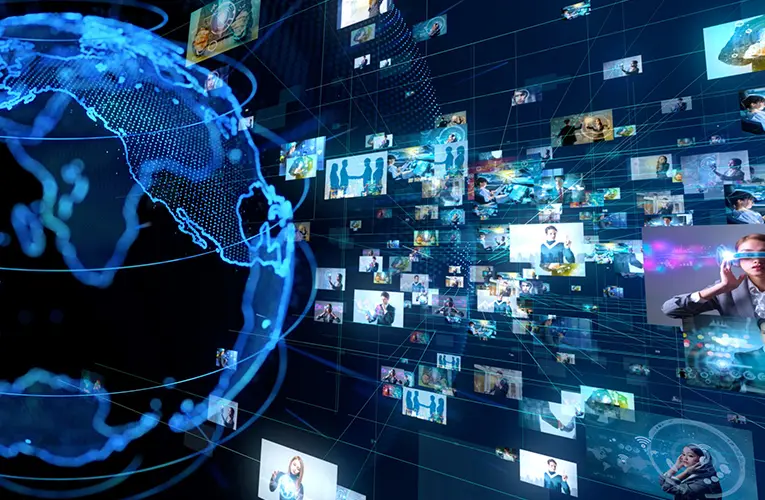“Artificial Intelligence: Revolutionizing Our World”
### “Artificial Intelligence: Revolutionizing Our World”
Artificial Intelligence (AI) is transforming virtually every aspect of our lives, from how we work and communicate to how we learn and make decisions. This guide explores the impact of AI on various sectors, its potential future developments, and the ethical considerations that accompany its growth. Whether you’re new to the topic or looking to deepen your understanding, this guide provides a comprehensive overview of AI’s role in revolutionizing our world.
—
### 1. Understanding Artificial Intelligence
#### **1.1 What is Artificial Intelligence?**
– **Definition:** AI refers to the simulation of human intelligence processes by machines, particularly computer systems. These processes include learning (the acquisition of information and rules for using it), reasoning (using rules to reach approximate or definite conclusions), and self-correction.
– **Types of AI:**
– **Narrow AI:** Designed for a specific task (e.g., voice assistants, recommendation systems).
– **General AI:** Hypothetical AI that would outperform humans at nearly every cognitive task.
– **Artificial Superintelligence (ASI):** A level of intelligence far surpassing that of the best human minds in practically every field.
#### **1.2 History of AI Development**
– **Early Beginnings:** The concept of AI can be traced back to classical philosophers who attempted to describe human thought as a symbolic system. Modern AI research began in the 1950s with pioneers like Alan Turing and John McCarthy.
– **Key Milestones:**
– **1956:** Dartmouth Conference, where the term “Artificial Intelligence” was coined.
– **1997:** IBM’s Deep Blue defeated world chess champion Garry Kasparov.
– **2011:** IBM’s Watson won the quiz show “Jeopardy!” against human champions.
—
### 2. AI in Everyday Life
#### **2.1 Personal Assistants**
– **Overview:** AI-powered personal assistants like Siri, Alexa, and Google Assistant help manage daily tasks through voice commands.
– **Capabilities:** Setting reminders, answering questions, controlling smart home devices, and more.
#### **2.2 Social Media and Content Recommendations**
– **Overview:** AI algorithms analyze user behavior to recommend content on platforms like Facebook, Instagram, and YouTube.
– **Impact:** Personalized user experiences and targeted advertising.
#### **2.3 Healthcare**
– **Overview:** AI applications in healthcare include diagnostic tools, personalized treatment plans, and robotic surgery.
– **Examples:**
– **Diagnostic Tools:** AI systems that analyze medical images for signs of diseases such as cancer.
– **Personalized Medicine:** AI-driven data analysis to tailor treatments to individual patients.
#### **2.4 Transportation**
– **Overview:** AI is driving advancements in autonomous vehicles, traffic management, and route optimization.
– **Examples:**
– **Autonomous Cars:** Companies like Tesla and Waymo are developing self-driving vehicles.
– **Smart Traffic Management:** AI systems that optimize traffic flow and reduce congestion.
—
### 3. AI in Industry and Business
#### **3.1 Finance**
– **Overview:** AI enhances decision-making in finance through predictive analytics, fraud detection, and algorithmic trading.
– **Examples:**
– **Fraud Detection:** AI systems that identify unusual transactions and prevent financial fraud.
– **Algorithmic Trading:** AI algorithms that analyze market trends and execute trades.
#### **3.2 Manufacturing**
– **Overview:** AI optimizes manufacturing processes through predictive maintenance, quality control, and automation.
– **Examples:**
– **Predictive Maintenance:** AI systems that predict equipment failures before they occur.
– **Robotic Automation:** AI-powered robots that perform repetitive tasks with high precision.
#### **3.3 Retail**
– **Overview:** AI transforms retail through personalized shopping experiences, inventory management, and supply chain optimization.
– **Examples:**
– **Personalized Recommendations:** AI algorithms that suggest products based on browsing and purchase history.
– **Inventory Management:** AI systems that predict demand and optimize stock levels.
—
### 4. The Future of AI
#### **4.1 Advancements in AI Technology**
– **Overview:** Ongoing research aims to improve AI capabilities, including advancements in machine learning, natural language processing, and computer vision.
– **Emerging Trends:**
– **Generative AI:** AI systems that create new content, such as images, music, or text.
– **Explainable AI:** Development of AI systems that provide transparent and understandable decisions.
#### **4.2 AI in Emerging Fields**
– **Overview:** AI is expected to make significant impacts in areas like climate science, space exploration, and quantum computing.
– **Examples:**
– **Climate Modeling:** AI to predict and mitigate the effects of climate change.
– **Space Exploration:** AI assisting in the analysis of data from space missions and telescopes.
—
### 5. Ethical and Societal Implications
#### **5.1 Ethical Considerations**
– **Overview:** The rapid development of AI raises important ethical questions about privacy, bias, and accountability.
– **Issues:**
– **Bias:** AI systems that reflect and perpetuate existing biases in data.
– **Privacy:** Concerns about how AI collects, stores, and uses personal data.
#### **5.2 Impact on Employment**
– **Overview:** AI’s automation capabilities may disrupt job markets and alter traditional employment structures.
– **Considerations:**
– **Job Displacement:** Potential for AI to replace routine jobs.
– **Job Creation:** Opportunities for new roles in AI development, maintenance, and oversight.
#### **5.3 Regulation and Governance**
– **Overview:** The need for regulations and frameworks to ensure ethical AI development and use.
– **Examples:**
– **AI Ethics Guidelines:** Initiatives by organizations and governments to establish ethical standards.
– **International Cooperation:** Efforts to create global standards for AI governance.
—
### 6. Conclusion
– **Summary:**
– Artificial Intelligence is revolutionizing various aspects of our world, from personal convenience to industrial efficiency. Its potential for future advancements promises continued transformation across multiple sectors.
– **Encouragement:**
– Stay informed about AI developments and consider how this technology can be leveraged in your personal and professional life. Understanding AI’s implications will help navigate its benefits and challenges.
– **Call to Action:**
– Engage with AI education resources, participate in discussions about ethical AI use, and explore opportunities to incorporate AI into your projects and endeavors.
—
This guide offers an overview of the transformative impact of Artificial Intelligence, from its current applications to future trends and ethical considerations. By understanding AI, you can better appreciate its role in shaping our world and its potential for future innovations.










